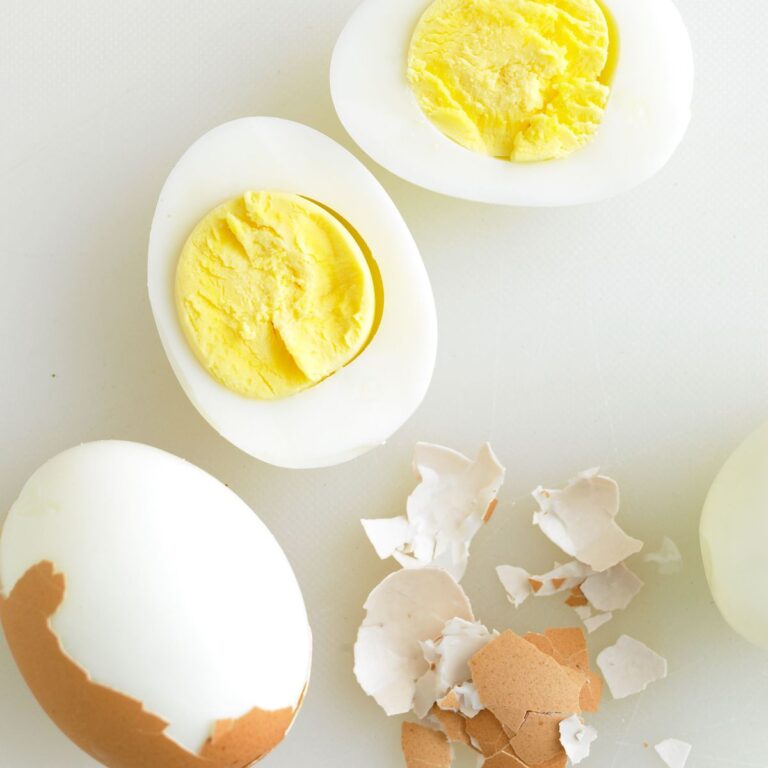ADVERTISEMENT
How Long to Cook Hard-Boiled Eggs (Because Timing Is Everything)
Hard-boiled eggs are a kitchen staple—perfect for breakfast, quick snacks, salads, or deviled eggs. But let’s face it: getting them just right isn’t as simple as it seems. Cook them too little, and you’ve got a runny center. Go too long, and you’re stuck with a rubbery texture and a greenish ring around the yolk (we’ve all been there).
So, what’s the secret to the perfect hard-boiled egg? It all comes down to timing.
🥚 The Perfect Method for Hard-Boiled Eggs
Before we dive into timing, let’s quickly go over the method that works best.
You’ll need:
- Eggs (as many as you want to cook)
- Water (enough to cover the eggs by about an inch)
- A saucepan with a lid
- Ice bath (bowl of water with ice)
Step-by-step:
- Place your eggs in a single layer in the bottom of a saucepan.
- Add cold water until the eggs are covered by at least an inch.
- Bring the water to a gentle boil over medium-high heat.
- Once it reaches a rolling boil, cover the pot with a lid, turn off the heat, and remove from the burner.
- Set a timer (see below for exact timing).
- When the time’s up, transfer the eggs to an ice bath immediately for at least 5 minutes. This stops the cooking process and makes peeling easier.
⏱️ How Long Should You Let the Eggs Sit?
Here’s a timing guide based on how you like your yolk:
- Soft-boiled with runny yolk: 4–5 minutes
- Jammy center (slightly soft yolk): 6–7 minutes
- Fully set, bright yellow yolk: 9–10 minutes
- Firm yolk with no gray ring (classic hard-boiled): 11–12 minutes
- Overcooked (chalky yolk, greenish ring): 13+ minutes — avoid this!
💡 For traditional hard-boiled eggs that are great for slicing or deviled eggs, aim for 10–12 minutes.
🧊 Why Use an Ice Bath?
An ice bath is a game-changer. Plunging the eggs into cold water immediately after cooking:
- Stops further cooking (no rubbery whites!)
- Prevents the dreaded gray ring around the yolk
